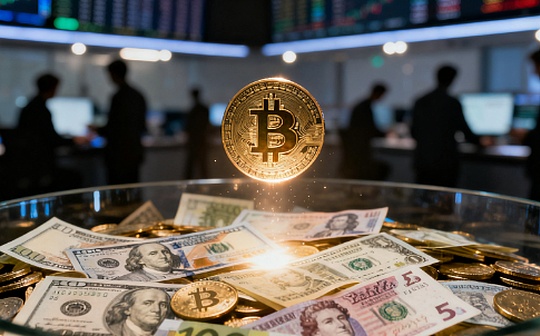
Author: Galaxy; Compiler: Bitchain Vision
Bitcoin price fell below $100,000 for the first time since June.
Cryptocurrency markets fell sharply last week as the stock market pulled back and macroeconomic pressures intensified.Galaxy Research lowered its year-end Bitcoin price target from $185,000 to $120,000, arguing thatBitcoin has entered a new phase of “maturity,” characterized by the gradual absorption of capital by institutional investors, increased passive capital flows, and reduced volatility.
Global risk appetite also fluctuated last week.U.S. stocks fell, with the S&P 500 down 1.1% and the Nasdaq down 1.9% as reports of layoffs and hiring freezes heightened concerns about an economic slowdown.
Galaxy’s perspective:
Cryptocurrency markets took a beating last week, with Bitcoin failing to hold the key psychological $100,000 mark, while other cryptocurrencies fared even worse.Of the top 100 cryptocurrencies by market capitalization, more than 70 have seen prices fall by more than 50% from their all-time highs.
Whale selling has been a drag on Bitcoin this year, but the collapse of leveraged trading on 10/11 may have been the straw that broke the camel’s back.The incident led to the bankruptcy of several market makers and funds and caused a significant shrinkage of global order books.
Positive catalysts for Bitcoin include the expansion of ETF distribution channels and the influx of traditional wealth channels.Advisors at Morgan Stanley can finally advise investors on initial allocations to Bitcoin, while three of the four major custodian banks have announced plans to launch Bitcoin services.Additionally, whale distributions will eventually end—early investors are limited in the amount of Bitcoin they can sell, while demand is theoretically unlimited.
We’re still bullish on Bitcoin, and frankly, that’s a sign of Bitcoin’s growth.The “mature era” may have ended the fantasy of “increasing 100 times a month”, but it has also eliminated its fragility..
ETFs are now absorbing the older generation of Bitcoin supply, long-term holding whales are about to run out of coins, and major banks that once disdained Bitcoin are now quietly using weekends to build cryptocurrency trading desks.
Those speculators chasing the craze have turned to AI stocks; while real adults are accumulating the few remaining digitally scarce assets.
You can call it boring – but it’s this boring, institutional, policy-sensitive Bitcoin that will eventually find its way into the global reserve portfolio.








